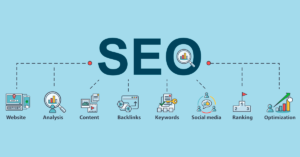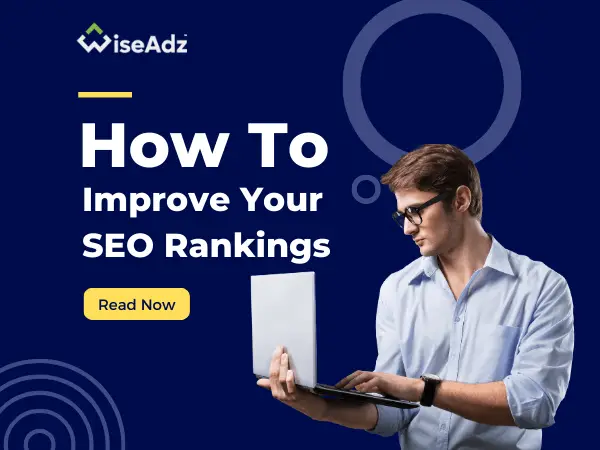Mastering SEO: A Long-Term Strategy for Online Visibility
In the digital age, having a website isn’t enough. If your target audience can’t find your business online, you’re missing out on a huge opportunity. Search Engine Optimization (SEO) is the process of optimizing your website to improve its ranking in search engine results, making it easier for potential customers to find you. While SEO is a long-term strategy, its results can drive consistent, organic traffic to your website, making it an essential tool for businesses in any industry.
Why SEO is Crucial for Your Online Presence
The majority of online experiences begin with a search engine query. When users search for products, services, or information, they tend to click on websites that appear at the top of the search results. If your website is not ranking high enough, you could be losing potential customers to your competitors.
The higher your website ranks on search engine results pages (SERPs), the more likely users are to visit your site. This increased visibility can drive more traffic, which leads to more leads and conversions. Unlike paid ads, SEO focuses on attracting organic traffic—users who find your website naturally through search engines. This makes SEO a cost-effective, long-term marketing strategy.
Key Components of SEO
To effectively improve your website’s ranking, SEO encompasses a wide range of strategies and techniques, including on-page SEO, off-page SEO, and technical SEO.
- On-Page SEO
On-page SEO refers to optimizing the elements on your website that search engines analyze to understand what your content is about. These elements include:- Title Tags: Your title tags should include relevant keywords that accurately describe the content on the page. Title tags also play a significant role in click-through rates from search results.
- Meta Descriptions: Although meta descriptions don’t directly impact ranking, they influence whether users click on your link in the search results. A well-crafted meta description can improve your website’s visibility and engagement.
- Keyword Usage: Including relevant SEO keywords naturally throughout your content helps search engines understand the topic of your page. However, avoid keyword stuffing, as it can lead to penalties from search engines.
- High-Quality Content: Google prioritizes websites that provide valuable, informative, and well-written content. Ensure your content is engaging and answers the user’s intent.
- Off-Page SEO
Off-page SEO focuses on increasing your website’s authority through external factors, mainly backlinks. Backlinks are links from other websites that point to your site, signaling to search engines that your content is valuable and trustworthy. The more high-quality backlinks you have, the more authoritative your site becomes, which can boost your ranking.Building a strong backlink profile involves:- Guest posting on reputable sites
- Creating shareable content (e.g., infographics, research, or unique blog posts)
- Networking with industry influencers to get your content featured on authoritative platforms.
- Technical SEO
Technical SEO refers to the behind-the-scenes factors that help search engines crawl and index your website efficiently. It includes:- Mobile-Friendliness: With the majority of searches happening on mobile devices, having a mobile-responsive website is essential for ranking well on search engines.
- Page Load Speed: Faster websites rank higher because they provide a better user experience. Tools like Google PageSpeed Insights can help you optimize your site’s loading times.
- Site Structure: A well-organized website with clean URLs, an XML sitemap, and intuitive navigation helps search engines crawl and index your pages.

SEO: A Long-Term Investment for Continuous Growth
Unlike paid advertising, which can provide immediate but short-term results, SEO is a long-term investment. It takes time to see the full effects of your SEO efforts, but the results can be incredibly rewarding. As your website’s visibility increases and traffic grows, your SEO strategy will continue to bring in leads and conversions without additional ad spend.
SEO is also an evolving practice. Search engines frequently update their algorithms, meaning your SEO strategy needs to be adaptive. Continuous optimization is key to staying ahead of competitors. Regularly updating your content, optimizing for new keywords, and staying on top of the latest SEO trends will help your website maintain its ranking and continue to grow.
Best Practices for SEO Success
To succeed in SEO, consider these best practices:
- Perform Keyword Research: Use tools like Google Keyword Planner, Ahrefs, or SEMrush to find keywords that are relevant to your business and have a healthy search volume.
- Optimize for User Experience: Google’s algorithms prioritize user experience, so make sure your website is easy to navigate, loads quickly, and is mobile-friendly.
- Consistently Create Quality Content: Regularly publishing blog posts, articles, and other forms of content can help your site rank for more keywords, attracting more visitors.
- Monitor Performance: Use tools like Google Analytics and Google Search Console to track your website’s performance and make data-driven decisions to optimize your strategy.
In a competitive online environment, SEO is a powerful tool for improving your website’s visibility and driving organic traffic. Although it requires time and ongoing effort, the long-term benefits far outweigh the initial investment. By focusing on on-page SEO, off-page SEO, and technical SEO, businesses can achieve higher search rankings, attract more visitors, and convert more leads.
If you’re ready to take your website to the next level, contact our team for expert SEO services here.




